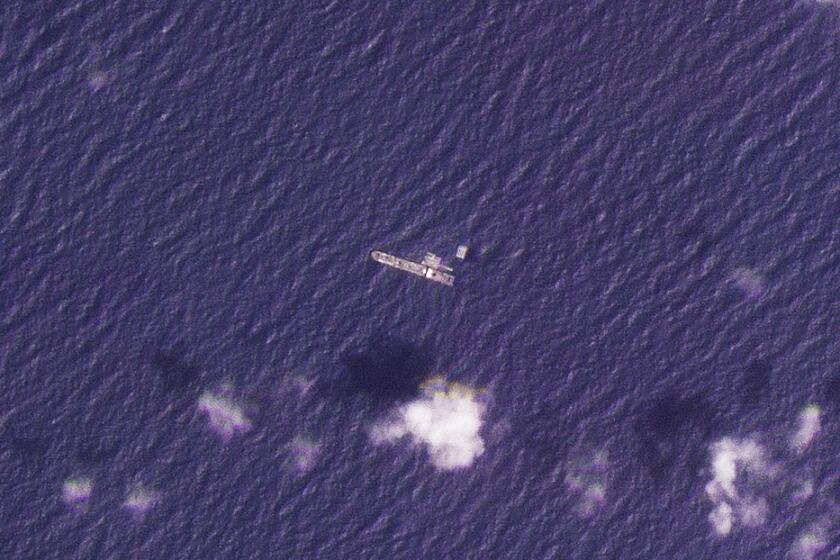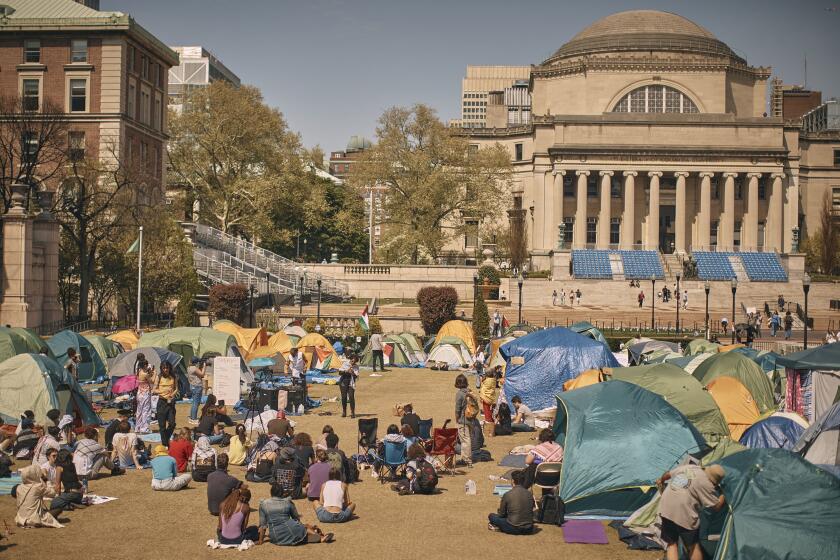Vote on N. Korea Faces Last Hurdles
The Security Council plans to vote today on a resolution imposing sanctions on North Korea for its declared nuclear test after a last-minute session to address Chinese and Russian concerns over how to implement them.
Tests showing radiation in gases near North Korea dispelled most doubts that the nation had exploded a nuclear device, which had arisen after earlier sampling did not detect any nuclear particles in the air, a U.S. government official said.
The resolution calls for a ban on goods related to North Korea’s missile and nuclear programs and a freeze on financial activities that support them, as well as a travel ban for senior North Korean officials. It also would put an embargo on heavy conventional weapons and luxury goods. A draft introduced late Thursday included a provision, requested by China and Russia, that made clear that the resolution would not allow military enforcement without another resolution.
But China has balked at a measure that would allow the inspection and seizure of suspected nuclear and missile materials going in and out of North Korea, arguing that it could provoke confrontation, interfere with commerce and allow intrusive activity too close to its borders.
The measure is based on the 2003 U.S.-led Proliferation Security Initiative, or PSI, involving a group of 16 core countries that have agreed to take steps to stop the flow of weapons of mass destruction, including boarding ships for aggressive inspections. Russia is a member of the core group, and more than 80 other nations have signed on.
U.S. Ambassador John R. Bolton, one of the architects of the initiative, said that including such a measure in the North Korea resolution would oblige nations to help with cargo inspections at air and sea ports and border crossings, and that it was consistent with international law. “I see that as a natural evolution,” Bolton said.
China, however, said it could not agree to the inspections. “Politically, China will not do it,” said the nation’s ambassador, Wang Guangya. “I believe that the exercises under PSI will easily lead, whether it is intentional or not, to ... escalations of provocations.”
Russia called a special session Friday afternoon to discuss objections to the implementation of the sanctions as outlined in the draft.
“We are not there yet,” Russian Ambassador Vitaly Churkin said about hopes for the entire Security Council voting in favor of the resolution. “It will be unanimous if and when, when and if, we vote unanimously on this resolution.”
The council plans to vote this afternoon after meetings to finalize proposed changes.
“I’m still ready to go for a vote,” Bolton said Friday night. “We’ll just have to see what instructions are overnight from Russia and China.” The two countries, neighbors and major trade partners of North Korea, are considered crucial to the implementation of the tough new sanctions.
U.S. Secretary of State Condoleezza Rice set plans to visit China, South Korea and Japan next week to discuss vigorous enforcement of the proposed sanctions, and to try to show a common front with allies, officials said.
Sean McCormack, the chief State Department spokesman, told reporters that Rice would be talking “about how to actually go about implementing the resolution.” Experts have said that the importance of the new resolution will depend largely on how strictly it is enforced.
Rice also plans to talk to leaders more broadly about regional security issues and nonproliferation efforts, McCormack said.
Christopher Hill, U.S. assistant secretary of State for East Asia, said Rice would urge other countries to stringently apply the sanctions.
“A key part of her trip will be to make sure that the resolution, when passed, will really have teeth to it, and will really function properly,” Hill said at an event sponsored by Princeton University’s Woodrow Wilson School of Public and International Affairs and Foreign Policy magazine. “We need to make sure that we have devised something that works” against North Korea, he said.
Meanwhile, tests of air samples collected near North Korea have confirmed the small-magnitude blast Monday was a nuclear explosion, the U.S. government official said.
Results of initial tests, released early Friday, found no evidence of radioactivity in air particles. But subsequent tests on gases collected by a WC-135 “sniffer plane” were positive for radiation, indicating an atomic explosion, the U.S. official said.
The samples were tested at the Air Force Technical Applications Center at Patrick Air Force Base in Florida.
Times staff writers Greg Miller, Julian E. Barnes, James Gerstenzang and Paul Richter in Washington contributed to this report.
More to Read
Start your day right
Sign up for Essential California for news, features and recommendations from the L.A. Times and beyond in your inbox six days a week.
You may occasionally receive promotional content from the Los Angeles Times.






